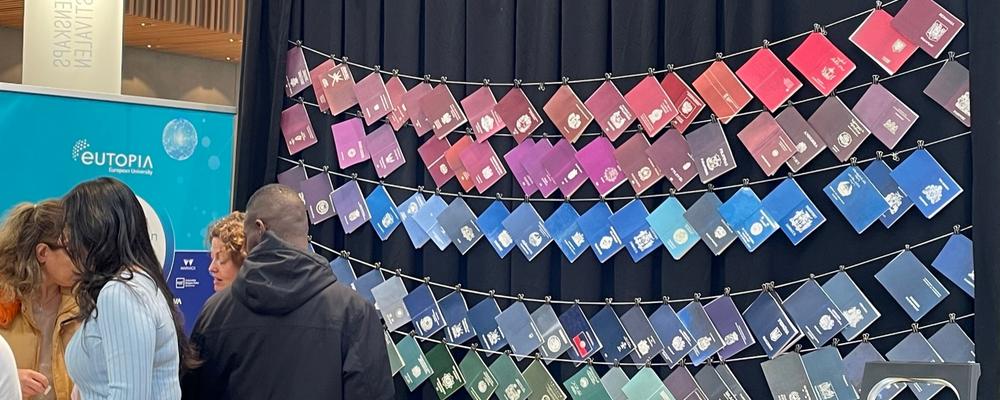
- Home
- News and events
- Find news
- Make your own passport continues to attract audiences to the Science Festival
Make your own passport continues to attract audiences to the Science Festival
Meet Tintin Wulia, who is behind the program item Make your own passport.
A sure sign of spring is that this year's program for the Gothenburg Science Festival is released. The festival runs from 18–23 April. A recurring program at the festival is Make your own passport.
We met with the creator Tintin Wulia who told us about the programs contents and what is happening at this year's festival.
Can you tell us about Make your own passport? How did you come up with the idea? What is the purpose of the activity?
Make Your Own Passport is a meeting place, the purpose of the idea is to bring discussions about national borders into everyday public life. When we think of borders, we tend to think of them as being at the edges of our countries. Through conversations in Make Your Own Passport you can learn how these boundaries, which manifest in policies that regulate us, actually are pervasive in everyone's everyday life.
Make Your Own Passport is conducted as a workshop in public spaces. The idea is to show that life is like a lottery, where you don’t know in advance where you will be born. Here you can get the opportunity to feel what it’s like being stateless. Together with others you realize this by making your own 'passport' where citizenship is determined through a lottery.
As a researcher, I have exhibited transnationally as an artist since 2000. The idea of Make Your Own Passport has been developed over a long period of time through my personal experiences as a minority, with passports and as a migrant. This combined with my PhD research on the iconic objects that embody our countries' borders, passports, walls and maps.
I began performing this workshop in the border area between Detroit, U.S. and Windsor, CA, in 2014 with the support of Art Gallery Windsor and Arts Queensland. Since then it has been performed more than 20 times with various organizations around the world.
How has the response to your participation been during the Science Festival?
We had around 400 participants in our first showing at the Science Festival in 2019, including the festival's school program. That's also when I met Catherine Gillo Nilsson, Bilal Almobarak and Lisa Palm who went on to be part of the Make Your Own Passport Network. Together we established Gothenburg University's Center on Global Migration Make your own Passport Network (CGM MYOP Network).
Why do you think it’s important for you to participate in the Science Festival?
Researchers cannot work alone – we are part of the public, which also enables our work in both a theoretical and pragmatic sense. We do research for the good of the public. It is important for them to be able to take part in how, where and why the research is done, but also to know who and what it is for.
You have been part of the festival's arena in Nordstan over the years, what is it like to arrange a program like this in Nordstan?
As you can imagine, it's busy! There are so many people with so many different drives coming from completely different backgrounds. This leads to many different discussions as it’s teeming with people from all walks of life.
Do you have anything else planned during the Science Festival?
We will publicly introduce my European Research Council-funded project "Things for Politics' Sake: Aesthetic Objects and Social Change", which will also be included in Nordstan during the Science Festival. I also invited to two other workshops, by Aram Han Sifuentes and Natalie Novik, which I think can be very relevant to the diverse environment in Nordstan.
Take the opportunity to participate in the Make your own passport workshop and meet Tintin and colleagues at the Science Festival.